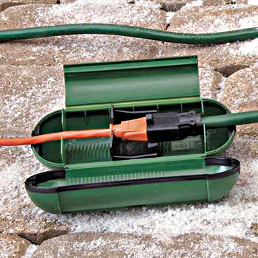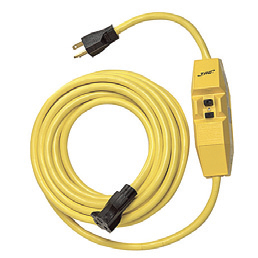

| Topic: Workers Electrocuted | |
| Date Issued: June 17, 2011 | Date Revised: September 1, 2022 |
A farm worker was electrocuted while using a pressure washer to clean hog pens. A short-circuit occurred in the receptacle end of the extension cord when the ground and the live terminals of the cord made contact. The short-circuit eliminated the path to the ground and, in turn, energized the pressure washer. Since the pressure washer was mounted on air-filled rubber tires, the farm worker who was holding the wash wand and touching the metal rail of the hog pen became a better path than the ground.
Another worker suffered the same fate while working in a fish smoking plant. He was electrocuted when he touched a defective extension cord. The extension cord, which had exposed conductors due to inadequate inspection and maintenance, laid on the wet salty floor and was plugged into a portable hand lamp to provide lighting in the work area. The worker, whose clothing was soaked with salt water, touched the exposed conductors and was electrocuted.
Care must always be taken when working with electrical equipment. This becomes even more crucial when working in moist environments, since the equipment is more likely to be corroded and electrical currents more easily transmitted.

